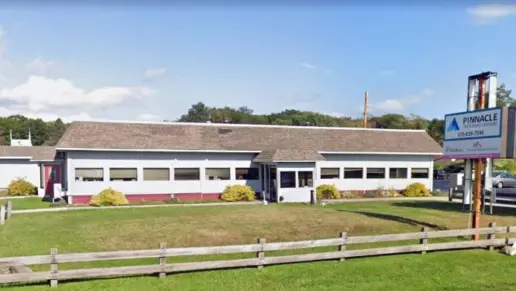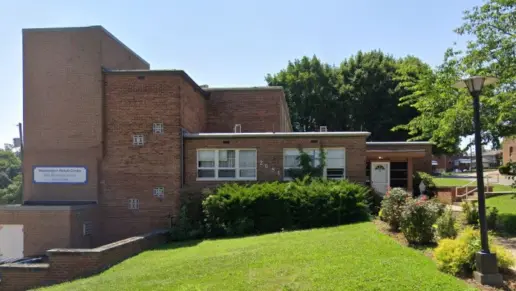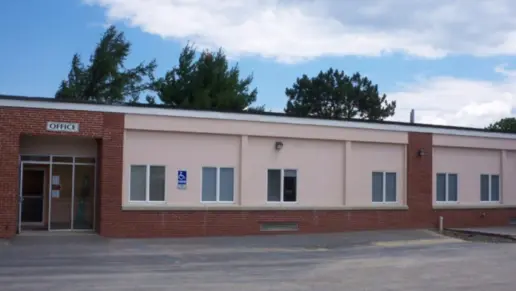About Behavioral Wellness & Recovery
Behavioral Wellness & Recovery is a 40-bed dual diagnosis, drug and alcohol rehab, serving those over the age of 18 who require treatment to overcome their addiction. Behavioral Wellness & Recovery offers a comprehensive drug and alcohol rehab program that is tailored to suit the needs of the patients.
Behavioral Wellness and Recovery is compromised to provide dual-diagnosis treatment for individuals with addiction. The program offers an individualized treatment approach in order to treat each of the patient’s specific needs. Behavioral Wellness and Recovery provides evidence-based treatment.
Behavioral Wellness and Recovery offers an intensive case management program which assists patients in the formulation and implementation of a comprehensive drug addiction and alcoholism treatment program and a relapse prevention program. The case management team will ensure that all the recommended areas and modalities of treatment are integrated.
Rehab Score
Other Forms of Payment
Private insurance refers to any kind of healthcare coverage that isn't from the state or federal government. This includes individual and family plans offered by an employer or purchased from the Insurance Marketplace. Every plan will have different requirements and out of pocket costs so be sure to get the full details before you start treatment.
Sliding scale payments are based on a client's income and family size. The goal is to make treatment affordable to everyone. By taking these factors into account, addiction recovery care providers help ensure that your treatment does not become a financial burden to you or your family, eliminating one barrier to care.
Self-pay involves paying for treatment out of your own pocket. You can use savings or credit, get a personal loan, or receive help from family and friends to fund your treatment. If you don't have insurance or your insurance plan doesn't cover a specific program, self-pay can help ensure you still get the care you need.
Addiction Treatments
Levels of Care
Treatments
The goal of treatment for alcoholism is abstinence. Those with poor social support, poor motivation, or psychiatric disorders tend to relapse within a few years of treatment. For these people, success is measured by longer periods of abstinence, reduced use of alcohol, better health, and improved social functioning. Recovery and Maintenance are usually based on 12 step programs and AA meetings.
Drug rehab in Pennsylvania is devoted to the treatment of addiction. Levels of care, treatment methods, and settings differ, but the aim of each program is to end drug dependency and empower participants to achieve long-term recovery.
The terms dual diagnosis disorder, co-occurring disorder, and coexisting disorder all refer to the same thing. When one has a dual diagnosis disorder, this means there exists a substance abuse disorder as well as a mental health disorder. These disorders traditionally were treated as separate and distinct illness, oftentimes providing treatment by different providers with little integration of treatment. It is now known that these disorders must be treated using a multidisciplinary team approach with frequent communication between caregivers and the treatment should be given simultaneously.
A combined mental health and substance abuse rehab has the staff and resources available to handle individuals with both mental health and substance abuse issues. It can be challenging to determine where a specific symptom stems from (a mental health issue or an issue related to substance abuse), so mental health and substance abuse professionals are helpful in detangling symptoms and keeping treatment on track.
Opioid rehabs specialize in supporting those recovering from opioid addiction. They treat those suffering from addiction to illegal opioids like heroin, as well as prescription drugs like oxycodone. These centers typically combine both physical as well as mental and emotional support to help stop addiction. Physical support often includes medical detox and subsequent medical support (including medication), and mental support includes in-depth therapy to address the underlying causes of addiction.
Programs



Clinical Services
Cognitive behavioral therapy (CBT) is a commonly used type of talk therapy for a wide-variety of mental health and psychological disorders, including drug and alcohol addiction and dual diagnosis disorders. CBT is also effective to learn how to better manage life stressors and is not necessarily used only for diagnosable illnesses. The underlying theme of using cognitive behavioral therapy is reframing. In reframing, the patient will learn how to nonjudgmentally evaluate his/her line of thinking and to change inaccurate or negative thoughts. The line of thinking affects emotions, which in-turn affect behaviors.
Whether a marriage or other committed relationship, an intimate partnership is one of the most important aspects of a person's life. Drug and alcohol addiction affects both members of a couple in deep and meaningful ways, as does rehab and recovery. Couples therapy and other couples-focused treatment programs are significant parts of exploring triggers of addiction, as well as learning how to build healthy patterns to support ongoing sobriety.
Creativity is inherently healing, and can help those in recovery express thoughts or feelings they might not otherwise be able to. Creative arts therapy can include music, poetry/writing, painting, sculpting, dance, theater, sandplay, and more. Unlike traditional art, the final product matters far less than the experience of creation and expression itself.
Dialectical Behavior Therapy (DBT) incorporates cognitive and behavioral therapy, combining methodologies from various practices including Eastern mindfulness techniques. This unique therapy model brings together what seem to be opposing views, acceptance and change, to produce better results than either one alone. Initially developed to treat chronically suicidal individuals with borderline personality disorder, DBT has evolved to include treatment of individuals with multiple different disorders. Dialectical Behavioral Therapy has had excellent success in treating individuals who struggle with: substance abuse, mood disorders, depression, anxiety, obsessive compulsive disorder (OCD), attention deficit – hyperactivity disorder (ADHD), and post-traumatic stress disorder (PTSD).
Eating disorders include anorexia, bulimia, binge eating, and dysfunctional eating patterns. Many psychologists and other mental health professionals consider eating disorders to be food addictions, meaning food is being used in an addictive way (similar to drug or alcohol addiction). Certain substance abuse treatment programs will have treatment for eating disorders as one of the services offered. An eating disorder may also present as a co-occuring disorder or dual diagnosis alongside drug and alcohol addiction.
Recreation therapy offers patients the opportunity to practice new patterns of behavior through engaging in a variety of activity-based interventions. Recreation therapists utilize diverse modalities, such as music, sports, art, creative writing, psychodrama, and teambuilding activities to develop skills that are fundamental to recovery. Sessions are designed to address the specific treatment goals of individuals, and the group overall. The focus is on improving social, cognitive, and emotional wellbeing.
EMDR is a therapeutic modality originally developed to help process trauma. In an EMDR session, a patient is prompted to undergo eye movements that mimic those of REM sleep. This is accomplished by watching a therapist's finger move back and forth across, or following a bar of light. The goal is repetitive sets of eye movements that help the brain reprocess memory, which can significantly reduce the intensity of remembered traumatic incidents. Associated memories can heal simultaneously, leaving patients significantly calmer, more stable, and more emotionally relaxed.
Drug and alcohol addiction not only effects the individual captured by the substance, but also the entire support system including the family, which we refer to as “the recovery alliance”. They believe that the best healing occurs within the entire recovery alliance. The alliance can be critical to a drug addict and alcoholic’s long-term success by reducing the relapse potential.
Fitness therapy blends exercise with psychotherapy for a fun, inspiring, and effective way of treating addiction and other issues. By incorporating movement into counseling sessions, clients become more empowered, motivated, and goal-oriented, all while strengthening their bodies and becoming more flexible. Fitness Therapy is usually used to complement a course of treatment (inpatient or outpatient) to make it even more successful. Increasing the connection between a patient’s mind and body helps both with healing as well as in creating new, healthy habits.
Group process therapy is a type of counseling where a trained therapist or counselor treats a small number of patients simultaneously as a group. It can be used to treat many issues such as grief, trauma and depression but it’s also used in drug and alcohol treatment centers. It’s most often used in conjunction with individual counseling and family counseling.
Individual therapy is the process whereby a psychiatrist, therapist or counselor works with a patient on a one-one-one basis. Individual therapy is critical in the treatment of patients in drug and alcohol rehab. Although the mainstay of drug and alcohol treatment is group treatment and activities, individual therapy is necessary to give patients a forum to discuss and process thoughts, emotions and events that they may not be comfortable sharing in a group setting.
Life skills trainings involve all the skills a person must have in order to function successfully in the world. These include time management, career guidance, money management, and effective communication. Truly successful addiction recovery is based on the ability to not only live substance-free, but to thrive. Life skills teaches the practical necessities of functioning in society, which sets clients up for success in life, and therefore sobriety.
Motivational Interviewing (MI) is a commonly used therapeutic modality for the treatment of drug and alcohol addiction. Motivational Interviewing is nonjudgmental and not confrontational. Rather, it empowers the patient and the therapist to form a partnership and assists the patient in overcoming his/her ambivalence about change. As is well-known, confrontational and directive therapy can lead to defensiveness and resistance, and an overall negative treatment experience.
Nutrition therapy, aka medical nutrition therapy (MNT), is a way of treating physical, emotional, and medical conditions through diet. Specific dietary plans are designed by professional nutritionists or registered dietitians, and patients follow them in order to positively affect their physical and mental health. Patient’s meals at BWR are prepared by a Certified Food Manger in their specially designed dining room. The dining room is organized in such a fashion as to promote communication and socialization between peers.
Rational Behavior Therapy (RBT) is a form of cognitive behavioral therapy meant to be short-term and comprehensive. It was intended to help clients become more self-sufficent and move forward without the need for expensive, ongoing therapy. It includes an emotional self-help method called “rational self-counseling,” the purpose of which is to give clients all the skills needed to handle future emotional issues by themselves, or with significantly less professional help.
Recreational therapy (aka therapeutic recreation) uses creative and fun activities to help with addiction recovery. Recreational therapists lead patients in entertaining and engaging activities like sports or games; art (drawing, painting, sculpture); drama, music, and dance; and/or community outings (field trips) to improve patients' physical, social, and emotional well-being.
Trauma therapy addresses traumatic incidents from a client's past that are likely affecting their present-day experience. Trauma is often one of the primary triggers and potential causes of addiction, and can stem from child sexual abuse, domestic violence, having a parent with a mental illness, losing one or both parents at a young age, teenage or adult sexual assault, or any number of other factors. The purpose of trauma therapy is to allow a patient to process trauma and move through and past it, with the help of trained and compassionate mental health professionals.
Amenities
-
Residential Setting
-
Private Setting
Accreditations

The Joint Commission, formerly known as JCAHO, is a nonprofit organization that accredits rehab organizations and programs. Founded in 1951, the Joint Commision's mission is to improve the quality of patient care and demonstrating the quality of patient care.
Joint Commission Accreditation: Yes
Accreditation Number: 590446

State Licenses are permits issued by government agencies that allow rehab organizations to conduct business legally within a certain geographical area. Typically, the kind of program a rehab facility offers, along with its physical location, determines which licenses are required to operate legally.
State License: Pennsylvania
License Number: 7TY56601
Contact Information
1301 Wrights Lane East
Suite 103
West Chester, PA 19380


